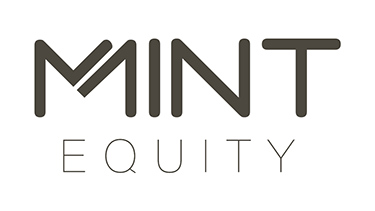Whether you’re looking to buy a property or get the latest mobile phone, your credit report is key to securing the arrangement. And with new reforms on credit data sharing, credit providers will have full visibility of how you manage your finances and ultimately, decide what value or interest rate they will charge you.
Safe to say, if you are a reliable person and on-top of your finances, this will reduce the risk to the credit provider. They may well provide you with quick approvals or a lower interest rate to reflect the risk.
So how do you keep your credit report healthy?
1. Check your credit report
The best way to make sure you have a good credit history is to know what’s in the report. It’s easy to forget to set up a direct debit once a credit card has expired so knowing what has been reported on your file is the first step to ensuring it’s healthy.
You have a right to a free credit report each year from each credit reporting body. Visit www.creditsmart.org.au to find out how you can get your free credit report.
2. Monitor your credit score
It’s great to know what your current score is but knowing if it has gone up or down will help you decide if your credit choices are reflecting the right perception to lenders. For example, if you accept the offer from your bank to increase your credit card limit, and you see that your credit rating goes down, and then you decide to apply for a home loan, you may regret taking the increased limit. Doing regular checks on your credit score will ensure you know exactly how your score is impacted by your credit transactions.
3. Keep your details up to date
The easiest way to damage your credit report is by failing to update your contact details when you move or payment details when your card expires. Where possible, always use a personal email address as your contact method, that way if you change jobs, you can still be contacted.
4. Schedule payment reminders
Forgetting to make payments can damage your credit report, so make your calendar your best friend. Organisation is not only key for cash flow, but to ensure you pay providers on time. Where possible, setting up a direct debit is a good solution to ensure you pay on time. You may also receive a discount for paying on time. Set up recurring reminders in your online calendar to remind you to make a payment or to cross check your bank account to ensure it has been debited. Also remember to keep your receipts for payments, see point 7 for more info.
5. Request a payment plan for big purchases
If you have a large bill or upcoming purchase, ask the provider if you can spread the payments out over a larger amount of time. Spreading out large payments can help improve your cashflow and reduce the risk of a missed payment or default. However, make sure you only use this technique on existing arrangements and not through the use of short-term credit like ‘After Pay’ – see point 6 for more info.
“Where possible, always use a personal email address as your contact method, that way if you change jobs, you can still be contacted.”
6. Avoid shop now, pay later providers
Don’t be misled, shop now, pay later providers like After Pay is a credit facility – and this will be recorded on your credit report. The application process still involves a credit check, and if you are applying for a home loan and you have a ‘pay later’ provider appearing on your bank statements, this will be classified by the lender a credit facility and may affect your borrowing capacity. The worst part of these pay later facilities, is they allow you to make repayments with a credit card – essentially getting credit with credit.
7. Fix errors on your report ASAP
If you find there is an error on your credit report, contact the provider immediately to fix it up. Identity fraud does happen, as do unrecorded payments, so if you think your provider has made a mistake, contact them straight away. Make sure when you make a payment, you keep a record of the receipt, that way you can provide proof of payment later on.
8. Be smart with credit applications
It’s easy to accumulate a large portfolio of credit cards and interest-free store credit facilities, so regularly review your credit facilities and close anything that you don’t need. Alternatively, reducing the limit on these cards can also help your credit report.
A borrower’s credit history is by far one of the most important elements when sourcing a home loan. Whilst there are some lenders who do not use a credit report as the basis for their lending assessment, the interest rates are generally higher.
If you’re looking to secure a home loan or refinance, speaking with an experienced mortgage broker is the best place to start. The team at Mint Equity are able to provide guidance and support throughout the whole process from concept, application through to settlement and beyond.


